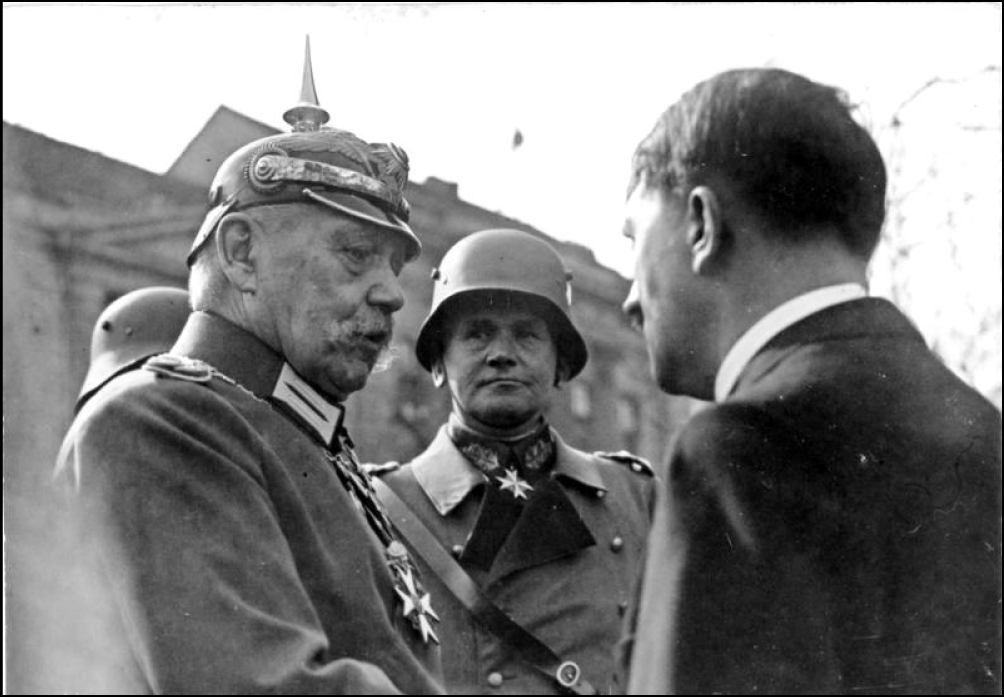Night of the Long Knives: ‘The Führer’s soldierly decision and exemplary courage.’
Hitler’s power was now almost absolute. But the excesses of the SA were troubling him. Their violence, which once, as a revolutionary, Hitler would have endorsed, had become an embarrassment. Having gained power Hitler wanted to win over the German people and international opinion through legitimate means, not by force. Still led by Röhm, the SA felt that Hitler was going soft and had not given them their due reward for helping the Nazis into power. They started talking of a ‘second revolution’ with Röhm the leader of the People’s Party, which greatly alarmed the industrialists and businessmen that Hitler had managed to woo. Röhm wanted also to merge the army with the SA under his command, which, in turn, alarmed the army and its chief, Werner von Blomberg.
In April 1934, Hitler and Blomberg signed a secret pact. Hitler promised Blomberg and the army full control of the military (ahead of Röhm’s SA), and, in return, Blomberg told Hitler that he could rely on the army’s support when the time came for Hitler to claim the presidency following the anticipated death of 86-year-old Hindenburg. Himmler, as head of the SS (a similar but rival group to the SA), and Göring, also feared Röhm. Between them, they concocted false evidence that Röhm was planning a coup against Hitler. The SA’s agitation was beginning to threaten the country’s stability, and Hindenburg (pictured with Hitler below) threatened to bring in martial law unless Hitler could bring the situation under control. In other words – deal with Röhm and the SA.

Hindenburg and Hitler, March 1933 (with Blomberg in the middle)
Bundesarchiv, Bild 102-16082 / Unknown / CC-BY-SA
On the weekend of 30 June–1 July 1934, in what was to become known as the ‘Night of the Long Knives’, Hitler acted. Members of the SS stormed a hotel in the village of Bad Wiessee where the SA had gathered for a weekend of homosexual debauchery, pulled Röhm and his henchmen from their beds and had them arrested. They were all promptly executed, including Röhm who, having failed the opportunity to take his own life, was shot.
Hitler took the opportunity to purge anyone whom he disliked or had crossed him in the past, including the last chancellor of the Weimar Republic, Kurt von Schleicher. The ‘Night of the Long Knives’ claimed over 200 lives. Hindenburg congratulated his chancellor for having acted so swiftly. The army, relieved to be freed from its main rival, sided with Hitler, and Blomberg applauded the ‘Führer’s soldierly decision and exemplary courage’.